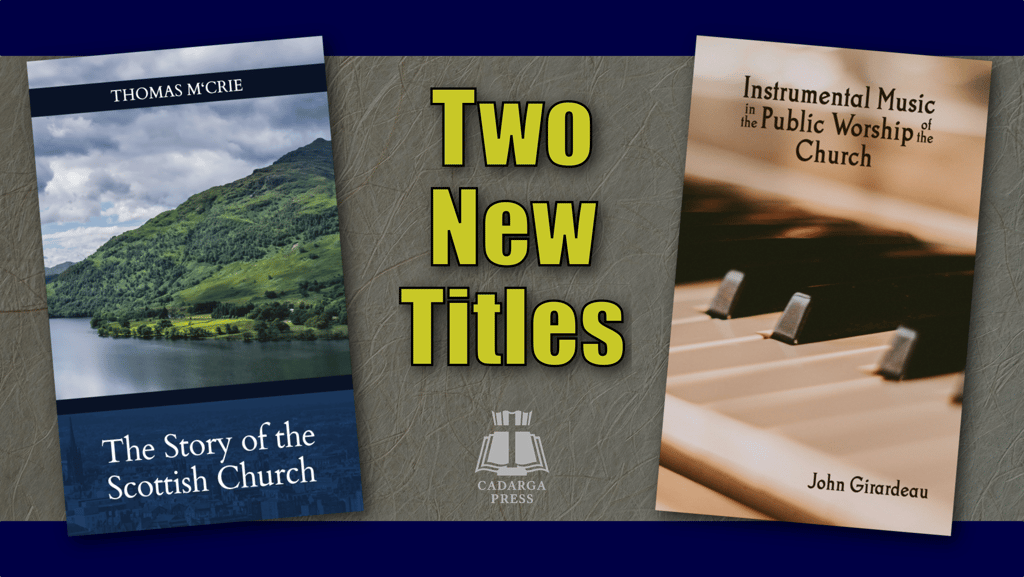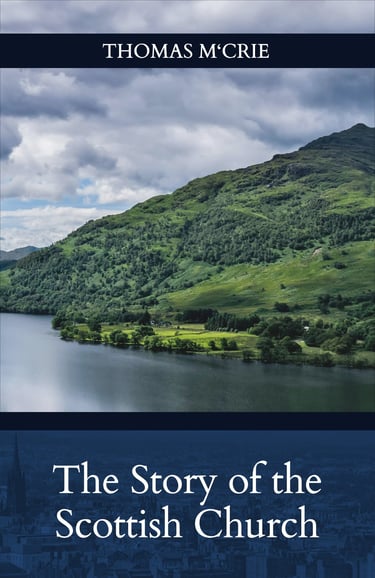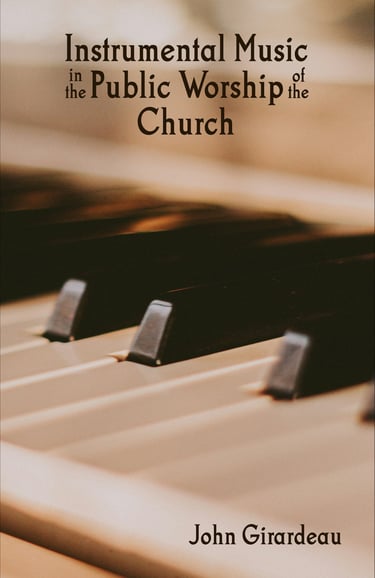

Two New Books from Cadarga Press
10/24/20253 min read
We are pleased to announce the release of two new books in the Cadarga Press range - one on the topic of Scottish Church History, and the other on Public Worship.
The Story of the Scottish Church
While many Christians are familiar with English Church History, the rise of the Puritans and the trials of believers in England during the 1600s, few are as familiar with the struggles of those to the north in Scotland. Yet the sufferings of the Presbyterians in 17th century Scotland, especially under King Charles II, ought to be read and known by all who desire to remain faithful to Christ.
The cruel and barbaric treatment that many experienced at the hands of their fellow countrymen - most of whom professed to be Christians - is almost impossible to imagine. Countless numbers suffered painful executions, with their mutilated bodies put on public display after their deaths. Many were murdered in cold blood, without any judicial process, in the presence of family and friends. Others had their homes seized, and their property destroyed. Some were banished to the Bass Rock - a squalid island prison - where they slowly died from disease and illness.
Instrumental Music in the Public Worship of the Church
If you were to ask most Christians today, "Is it appropriate to use musical instruments in public worship?" you would probably receive a very puzzled look in return. The practice is now so common throughout the visible church that most believers take it for granted that musical instruments are not only permitted, but even necessary, for God-pleasing worship.
Yet surprisingly, this view is relatively recent in the long history of the Christian church. For nearly 1300 years, no musical instruments were used in worship at all, until they were gradually introduced into the liturgy of the Roman Catholic church in the late 1200s. Two centuries later, many Protestant Reformers removed musical instruments from public services, as they sought to reinstate the purity and simplicity of Biblical worship. This remained the standard practice in most Protestant churches until about 200 years ago, when once again, they slowly became accepted in public worship.
Why? Why did these believers endure such treatment? It is because they believed that Christ is Lord and King over His Church, and not the state. They believed that only the Lord Jesus Christ has the right to rule, govern and order His Church, and that no men on earth - not even kings - have the right to usurp His divine authority.
It is a principle which the Scottish Presbyterians repeatedly fought to uphold throughout their history - not just in the 'Killing Times' of the 17th century. And Thomas M'Crie's book provides a wonderful and exciting overview of how this happened - from before the reformation of John Knox's era, through to the famous Disruption of the Church of Scotland in 1843.
Visit the product page here, where you can download a free PDF copy of the ebook, or follow the links to purchase a physical copy of this title.
But why? Why did God's people largely reject the use of musical instruments in worship in the first place? This book from John Girardeau helps to answer this question. In it, he explains the underlying Biblical principle that ought to govern all public worship, and shows from the Scriptures that the use of musical instruments in public worship is not permitted by the Lord. He also summarises the history of their non-use in the Christian church, and examines the teaching of the Westminster Standards on this very topic.
Visit the product page here, where you can download a free copy of the ebook, or follow links to where you can purchase a physical copy of this title.
Information
If you have any questions, or would like to know more about us, please get in touch via our Contact Form. We'd love to hear from you!





